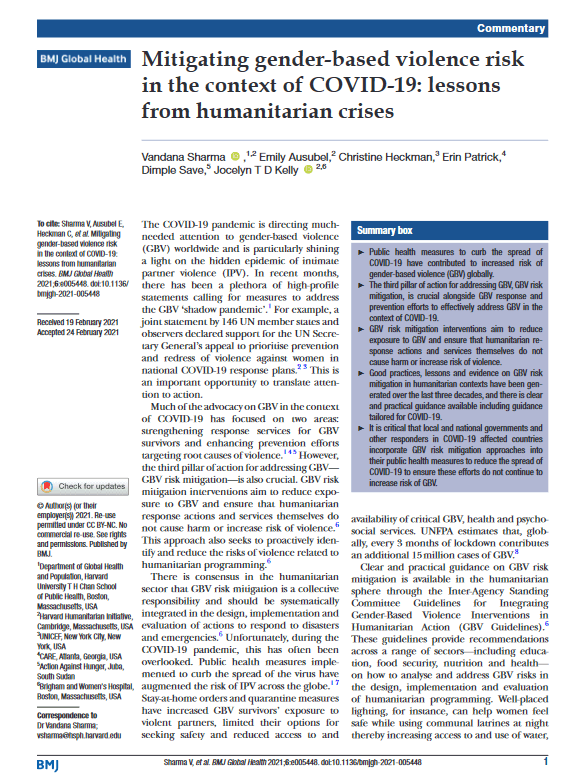- Public health measures to curb the spread of COVID-19 have contributed to increased risk of gender-based violence (GBV) globally.
- The third pillar of action for addressing GBV, GBV risk mitigation, is crucial alongside GBV response and prevention efforts to effectively address GBV in the context of COVID-19.
- GBV risk mitigation interventions aim to reduce exposure to GBV and ensure that humanitarian response actions and services themselves do not cause harm or increase risk of violence.
- Good practices, lessons and evidence on GBV risk mitigation in humanitarian contexts have been generated over the last three decades, and there is clear and practical guidance available including guidance tailored for COVID-19.
- It is critical that local and national governments and other responders in COVID-19 affected countries incorporate GBV risk mitigation approaches into their public health measures to reduce the spread of COVID-19 to ensure these efforts do not continue to increase risk of GBV…
Sharma, V., Ausubel, E., Heckman, C., Patrick, E., Save, D., & Kelly, J. T. (2021). Mitigating gender-based violence risk in the context of COVID-19: lessons from humanitarian crises. BMJ Global Health, 6(3), e005448.






